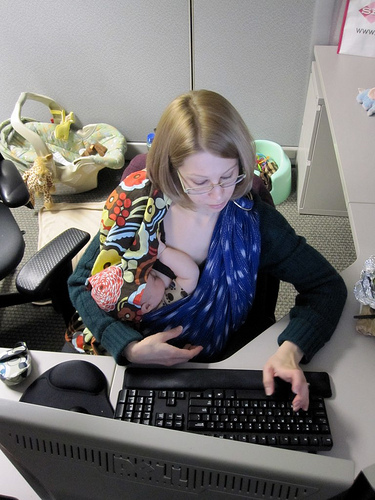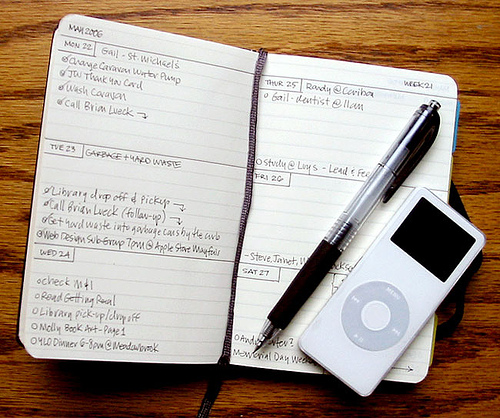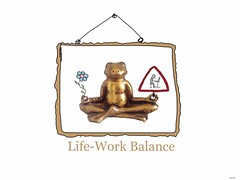With a new year approaching, many of us get to thinking that it may be time to move on to a different job. Whether it's time to quit depends on the type of job you're in - and how much that job's affecting your mood and behavior.
The Three Types of Jobs
Start by determining what type of job you hold, then pop down to "Next Steps" to learn what to do in your situation.
1. The "It Pays the Bills" Job
This job - which might be called a stop gap or even a drudge job - is one for which you don't hold out any high hopes of fulfillment or long-term potential. It's purpose is simply to supply the cash while you balance other demands (e.g., school or family life) or try to secure a job in the field of your dreams.
2. The "Unfulfilling Career Ladder" Job
This is a job that you'd hoped would set your heart on fire. It's in your field of choice, has many aspects that are a good fit for you, and has at least some potential of being "the one." When it comes right down to it, though, the job leaves you feeling...blah.
Importantly, this sort of job isn't dragging you down, it's simply not boosting you up.
3. The Toxic Job
Now THIS is the job you need to quit. And soon. This job type is so important (and common...) that we'll spend the bulk of today's post discussing it.
Jobs in categories 1 or 2 can turn into a toxic job, sometimes with little warning. The toxicity of a job is just like the toxicity of substances – you may be able to take it until it reaches a critical level, and then it simply takes you down.
Signs of a Toxic Job
Before we dig into the signs of a toxic job, an important note: the following are not the aspects of a job that make it toxic. That actually varies from person to person depending on preferences and personality. (What seems like a yelling, abusive boss to one person feels like a great motivator to another!)
Instead these are symptoms that you may start to display while in a toxic job:
1. Never smiling at work. Most of us don't spend our entire days smiling. That would just be weird. (!) That said, you don't want to be like my career coaching client who said, "Someone came in my office and told a funny story and when I smiled, it felt strange. Like I hadn't used those muscles in so long I couldn't remember how to make them work." Ugh.
2. The belief that something is wrong with you for feeling miserable in your organization or field. This one breaks my heart. If your work environment or career path doesn't match your preferred skills, interests or values, that doesn't mean YOU are the problem. It means you and the work don't fit. Period. When your work is changing your thoughts about yourself and your sense of esteem, it's an ugly, ugly sign.
3. Irritability. You've become the snappiest person you know, launching into bitter tirades at the drop of a Kardashian marriage, especially when you're home. This doesn't mean your home life is the problem, it's simply "safer" to show your anger to your loved ones than to the people who can have you fired, so that's where the irritability tends to make its great display.
4. Hopelessness about future work. The most common sentiment I hear my clients in toxic jobs express is, “I don't know if there's any job out there worth doing. I think I'm doomed to be miserable at work forever." This is a depressive mindset, thinking that negative things going on now will continue forever. Once you breathe the clean air of a healthy work environment (even vicariously through informational interviewing), your thoughts will begin to change. Trust me.
5. Lack of motivation/energy at the end of each and every day (except maybe Fridays). We all have exhausting days. We all have days we'd rather not be working at all. But when those once-in-a-while days become your norm, it's a pretty sure sign you're in a toxic job. You should want to do more than watch TV and eat takeout all evening every evening. That is not living.
6. Sleep disturbances. When your sleep starts to change, job toxicity is nearing a breaking point. You might find yourself being unable to fall asleep, waking up for long periods of time in the middle of the night and/or waking up too early every morning. For instance, my husband began waking up at 4am every single day in the three months after his job turned from unfulfilling to toxic. He said he wasn't thinking about anything in particular (not even work) but couldn't fall back asleep. Once we made the decision that it was time for him to find a new job, voila, he started sleeping normally again. And - bonus - he hadn't even quit yet; the decision to leave was enough to cause the change.
7. You experience repeated “Sunday night hangovers" - a sense of dread that descends as the work week creeps closer, affecting your behavior and mood. As business consultant Ellen Mastros told US News and World Report, we all tend to feel sad as Monday approaches, but getting angry, irritable, or having physical symptoms like headaches and stomachaches isn't OK. Not sure if you experience these hangovers? Ask the people who live with you. Believe me, they'll know.
Next Steps
Now here's what I'd suggest you do, depending on your job type:
If you're in a "It Pays the Bills" Job, you'll know when it's time to quit: when your path to meaningful work finally becomes available. (PS - if you're not actively working toward making that a reality, it's time. "It Pays the Bills" Jobs are notorious for turning toxic.)
If you're in an "Unfulfilling Career Ladder" Job, before you think about quitting, make a concerted effort to employ some concrete job crafting strategies, such as those covered in my free eBook. Put a time limit on how long you'll give the strategies a shot before reassessing quitting - maybe 6 months or a year - and be proactive during that entire time period. This isn't about settling but about building. Believe me, the teaching job I've now held for a decade went from bland to blissful because I took these very steps.
Finally, if you see one or two of the signs of a Toxic Job, it's time to formulate your exit plan ASAP; you only have months or possibly weeks until the toxicity overwhelms you and makes you suddenly scream "I quit!" in the middle of a team meeting, burning boku bridges in the process. (Most of my coaching clients wait until they're at this point-of-no-return before contacting me...not the best move.)
How do you make a plan to quit smartly? By building an emergency fund, doing introspective work to determine your next best move, and using networking to lay the groundwork for the change ahead.
Then when the toxicity eventually scalds you to your core, you'll be ready, not desperate.
Know someone who is thinking about quitting? Please pass this article along to him or her.
Now I want to hear from you: What are your experiences with quitting? Were you in a toxic job, or in one of the other two types? What was the final straw that made you leave?
Photo Credit: quinn.anya















